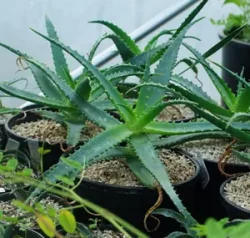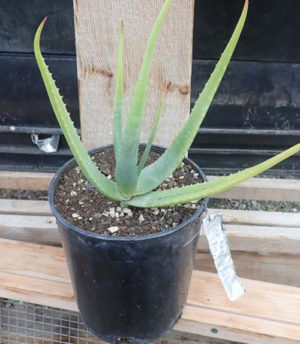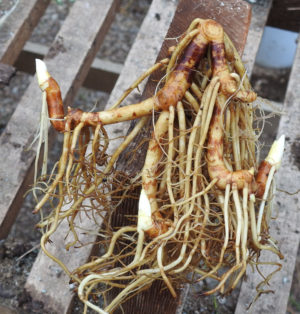Plants ordered now will ship Spring 2026 🙂
Walnut, Black (Juglans nigra) tree in a 9-inch-deep pot, Organic
$21.00
Family: Walnut (Juglandaceae)
Hardy to Zones 4 to 9
Deciduous tree native to Central, Eastern and Southern United States and Canada, flowers unisexual, monoecious, green, inconspicuous. Taprooted tree reaches a height of 75 feet and is quite slow-growing. Excellent shade tree. Traditional usage of the green husk (American Indian, TWM): antifungal, antiparasitic. Black dye plant. Produces large edible nuts. The wood itself is highly prized for instrument making, furniture and turnery. Black walnuts secrete juglone into the surrounding soil which may limit the growth of other plants attempting to grow within the dripline of the tree. Walnut prefers part shade to sun and good water, drainage, and loam, clay-loam, acidic or calcareous soils. Space trees at least 20 feet apart.
Potted tree in a 9-inch-deep pot, second year from seedling, certified organically grown
In stock






Question
Mayshanna –
Can I limit the growth so it stops at about 5 feet?
Upvote if this was helpful (0) Downvote if this was not helpful (0) Watch Unwatch Flag for removal
Richo Cech –
hi mayshanna, i haven’t heard of anyone pruning a black walnut. maybe try a smaller-sized tree like Nirgundi or cramp bark. r
Upvote if this was helpful (0) Downvote if this was not helpful (0) Flag for removal
Question
Simona –
Hi, I live in Chicago and I want to plant this is front of my house. Does this tree need polination? I’m planning to buy an apple tree to plant nearby. Would those 2 go well together?
Upvote if this was helpful (0) Downvote if this was not helpful (0) Watch Unwatch Flag for removal
Richo Cech –
Juglans nigra is self-fertile and is assisted in full pollination by having several trees. Normally these are planted singly as stately landscape trees. I think it would make sense to decide which you like best–the apple or the black walnut. r
Upvote if this was helpful (0) Downvote if this was not helpful (0) Flag for removal